For as long as I have known folk in Siberia have been in the vanguard of the ecological movement in Russia.
Troops set to work decontaminating ‘Siberian Chernobyl’ amid fears of ecological catastrophe
Radiation, chemical and biological forces tackle two million tonnes of toxic chemical waste with huge mercury stockpile and oil poisons
'Frankly, nobody has ever done anything about them.' Picture: Ministry of Defence
12 August, 2020
Concern over the abandoned Usolyekhimprom plant in Usolye-Sibirskoye, Irkutsk region has been rising for a long time.
This week on an order by Russian president Vladimir Putin specialist forces as well as experts from Rosatom and other government agencies have set to work cleaning up the site of one of the USSR’s largest chemical plants.
Footage shows the decontamination operation getting underway by taking samples of the poisons - not all of them known - threatening the nearby Angara River which flows out of Baikal, the world’s deepest lake.
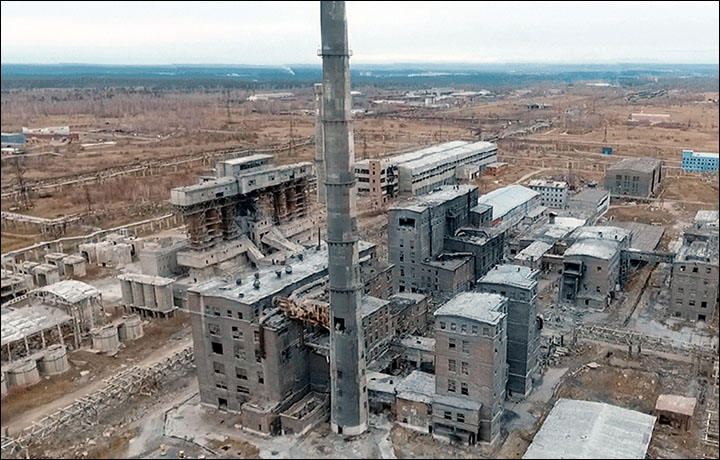
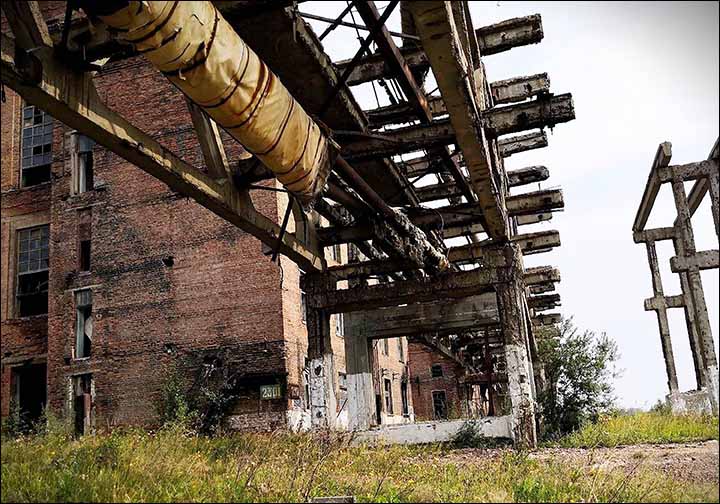
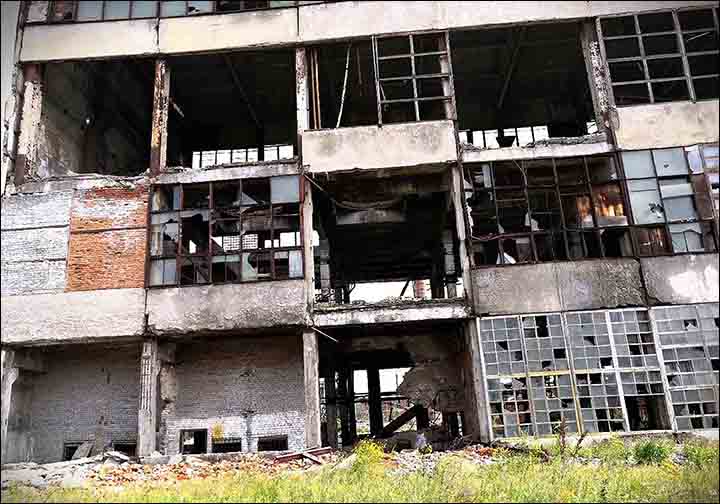
'A large chemical factory was functioning there, and now, the waste storage facilities of that chemical factory are in a critical condition.' Pictures: Usolye City Newspaper, Usolie City
The problem was highlighted by The Siberian Times last year when Svetlana Radionova, head of state environmental watchdog Rosprirodnadzor, warned of a ‘toxic disaster’ and ‘ecological Chernobyl’, comparing the potential damage to the 1986 nuclear explosion in Soviet Ukraine.
Putin recently said: 'It is obvious to everyone concerned that the burden of environmental problems has been accumulating for a long time, going back to the 1930s.
'A large chemical factory was functioning there, and now, the waste storage facilities of that chemical factory are in a critical condition.
'Frankly, nobody has ever done anything about them.
'Moreover, instead of settling the problem, it was actually glossed over.’
Footage shows the decontamination operation getting underway by taking
samples of the poisons.
The most urgent task is dealing with poisoning from a decaying mercury electrolysis facility.
The concentration of mercury in drainage waters at the crumbling plant is more than 33,000 times acceptable levels, according to defence ministry sources.
Mercury in the air is 367 times above permitted quantities, with the closest residents
living just 2km from the site.
Some 1,200 tonnes of mercury was stored here.
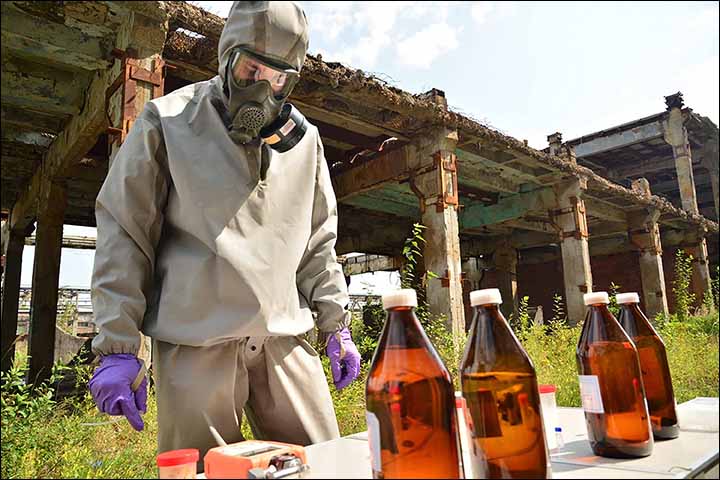
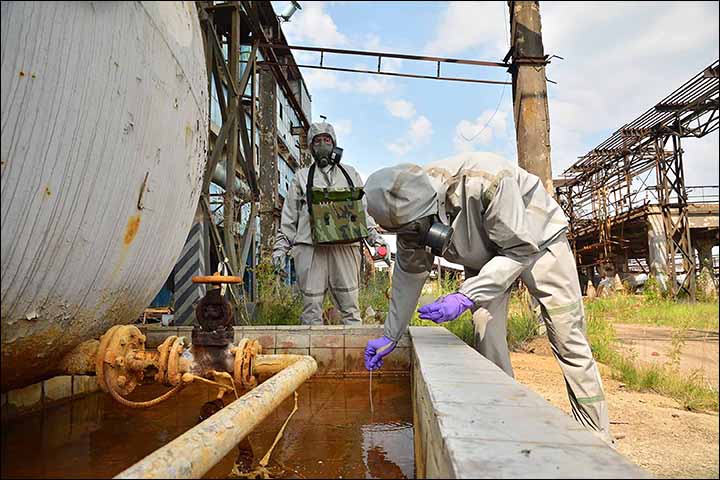
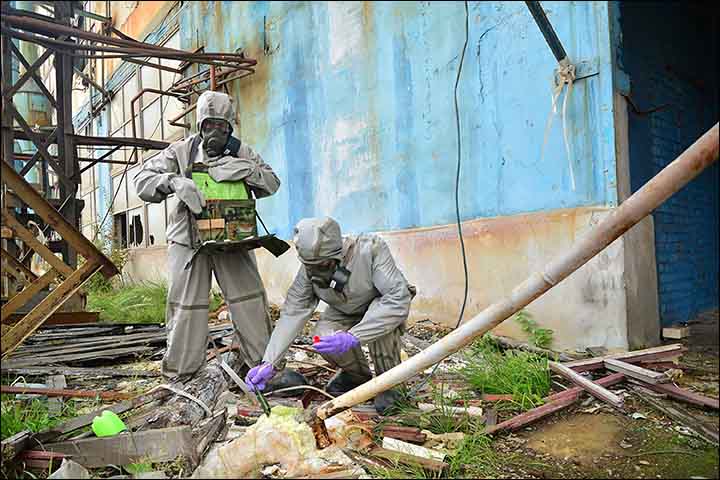
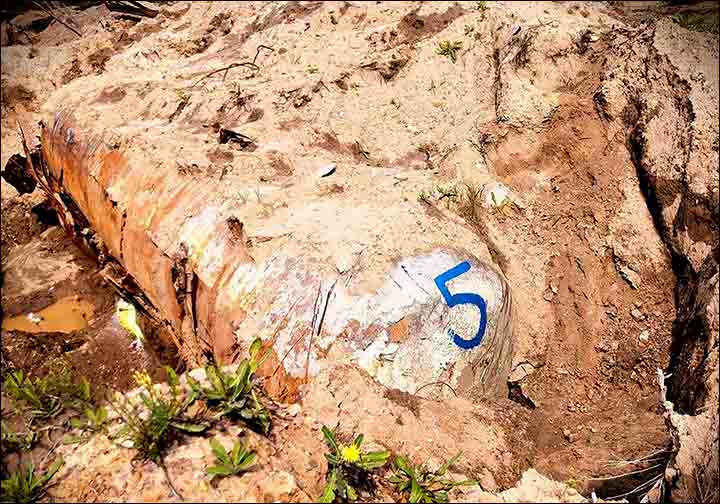
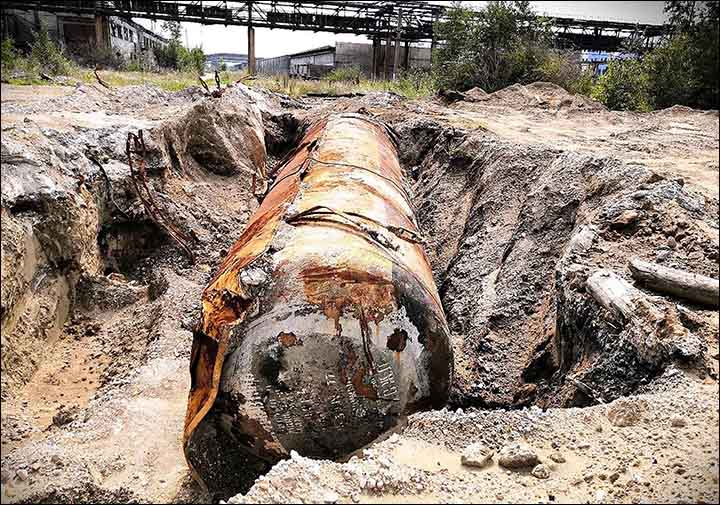
The most urgent task is dealing with poisoning from a decaying mercury electrolysis facility. Pictures: Ministry of Defence, Usolie City
Pollution is also caused by oil products, iron, copper, phosphates, lead, zinc and copper at the plant which closed in 2005.
The exact chemical cocktails in dozens of underground reservoirs is not known.
Soil and groundwater are ‘saturated with toxins’.
Some 400 former industrial facilities are polluted by two million tonnes of chemical waste on an area covering 16 square kilometres.
‘All production facilities, including soil and subsurface water, have been saturated with hazardous chemicals,’ said Irkutsk region governor Igor Kobzev.
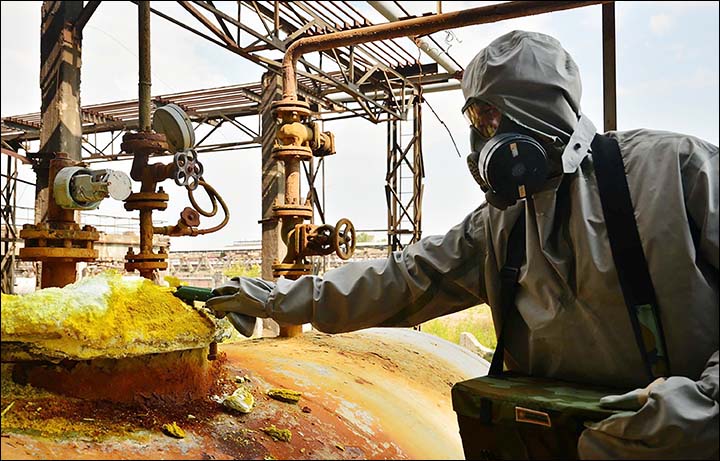
No comments:
Post a Comment
Note: only a member of this blog may post a comment.